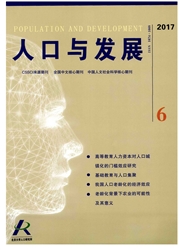

 中文摘要:
中文摘要:
针对以往网络理论研究中存在的网络结构对组织绩效影响效果的争论,侧重于对网络内容方面的关注,从网络中流动的知识与成员的学习策略的角度,考察咨询网络对组织绩效的影响;通过引入成员的学习策略,扩展了LazerD的群体互动模型,并以该模型为基础进行计算机仿真实验。实验研究结果表明,组织的任务咨询网络与成员的学习策略通过调整组织中知识的分布而影响组织绩效。高密度的任务咨询网络与完全模仿策略的学习行为将导致群体知识迅速的同质化,在短期内将给组织带来较高的绩效,但不利于长期绩效的提高;而低密度的任务咨询网络与选择性模仿策略的学习行为有利于保持群体的异质知识,有利于组织长期绩效,但短期内绩效较低。最后,对组织的和谐耦合过程进行分析,提出组织在发展的不同时期通过制度与人的能动性的调整来保持持续的高绩效。
 英文摘要:
英文摘要:
According to the debate on how the advice network affects organizational performance, this study focuses on the network context. From the perspective of knowledge flow and actor's learning strategy, this study tests the effect of advice network on the organizational performance. We expand the Lazer D's model by considering the learning strategy, which makes a foundation for computer simulation experiment. The experiment results show that advice network and actor learning strategy affect organizational performance by adjusting the knowledge distribution: high density network and total copy strategy lead to group knowledge homogeneity which positively impacts on performance in short term yet negatively in a long run; sparse network and optional copy strategy can keep a diversity knowledge which is good in long term but leads to low performance shortly. Finally this study analyses the HEXIE coupling process and proposes that organization should adjust institutional construction and actor's activity to promise a continually high performance.
 同期刊论文项目
同期刊论文项目
 同项目期刊论文
同项目期刊论文
 期刊信息
期刊信息
